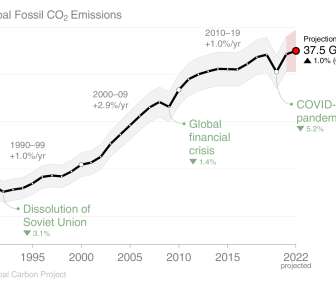Study Finds Global CO2 Emissions Dropped 1.3% in 2009; Emissions in China and India Rose 9% and 6%
Green Car Congress
SEPTEMBER 2, 2010
in 2009, the first decrease recorded this decade, according to an addendum to an earlier study outlining a method for updating global fossil fuel carbon dioxide emissions published in the journal Environmental Research Letters. In contrast to many other countries, China and India increased their emissions in 2009. Resources.











Let's personalize your content